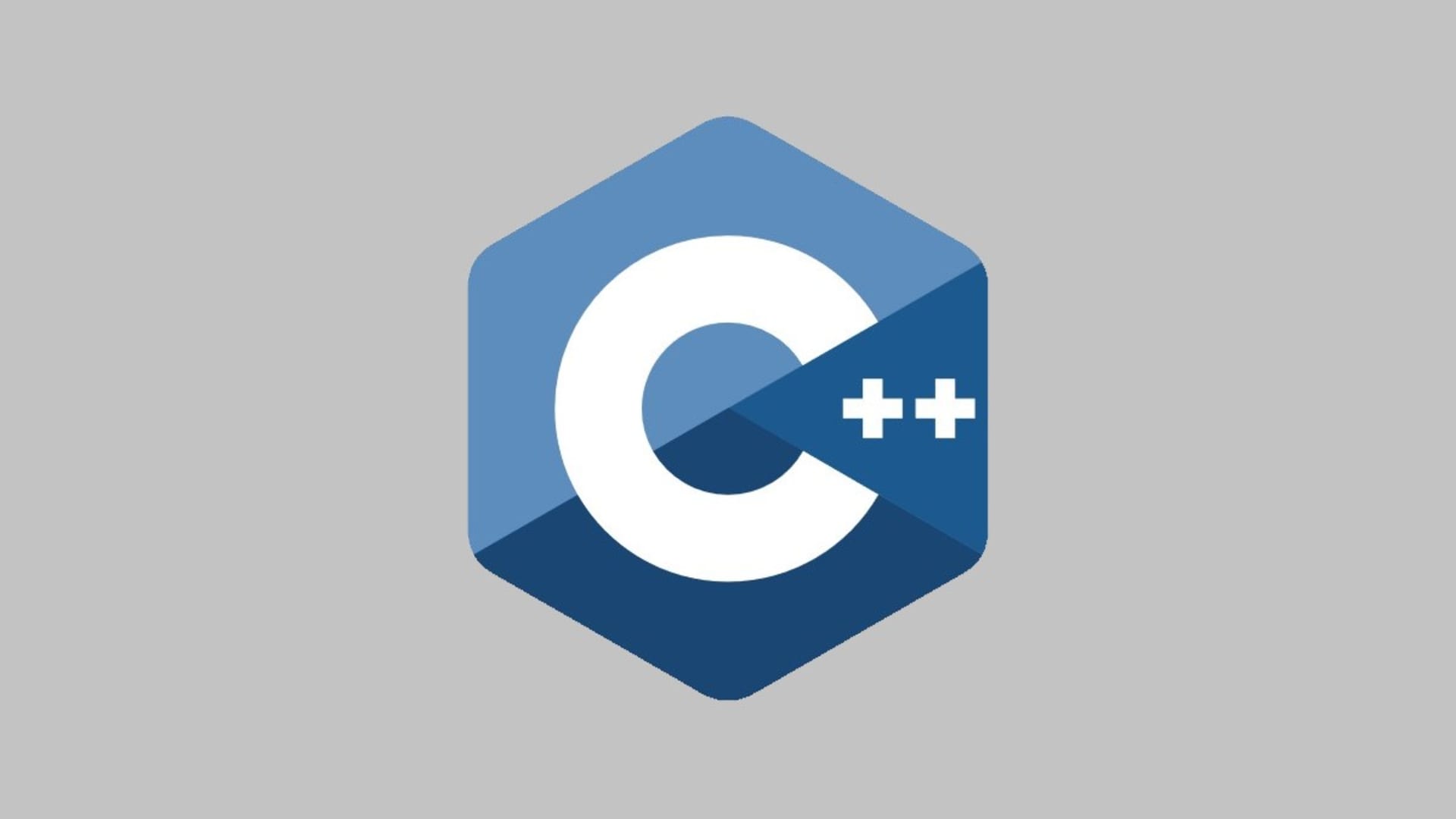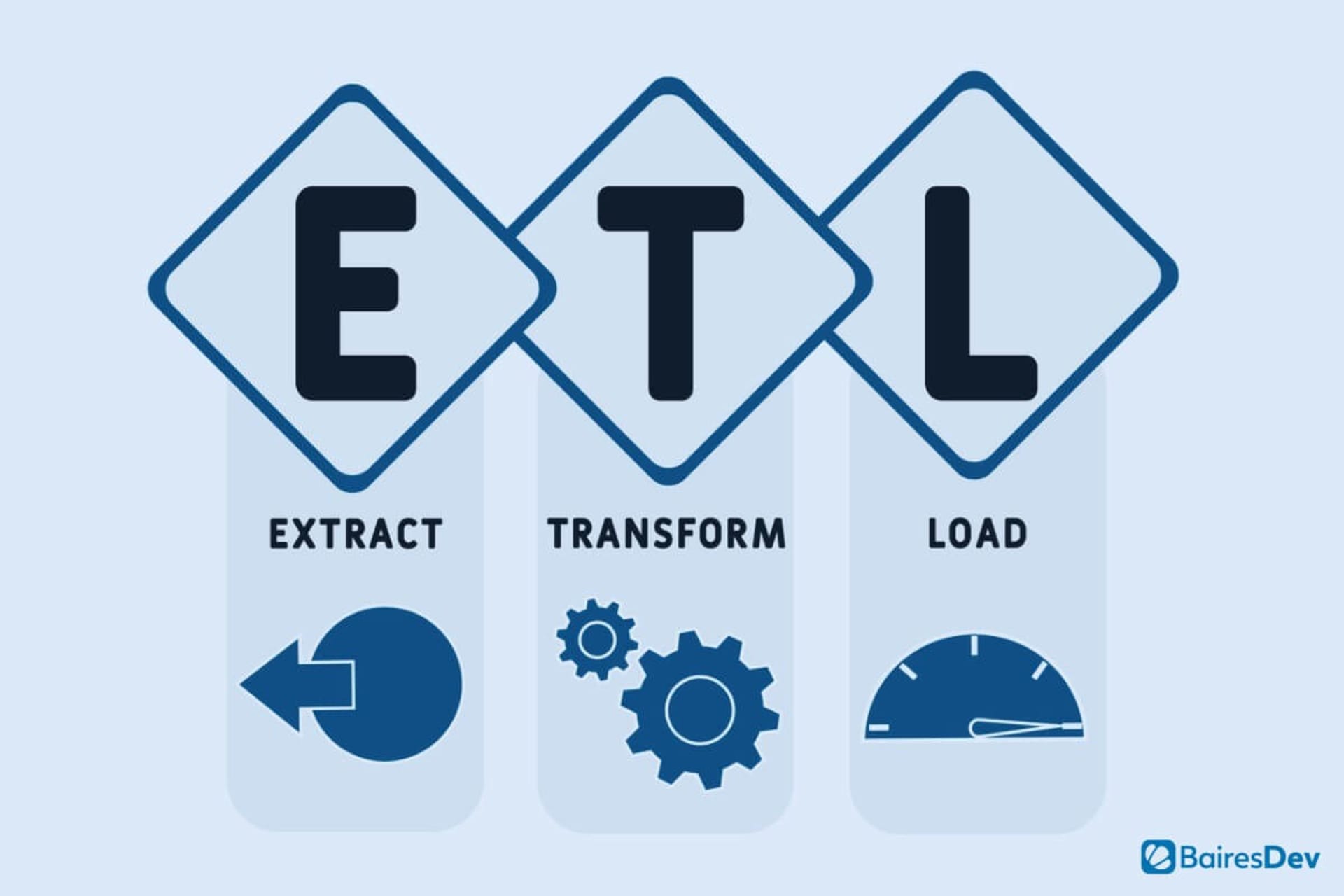C++ has outlasted every hype wave in software. Java once claimed it would erase memory bugs forever. JavaScript promised a single runtime that would swallow the desktop. Go offered painless concurrency in every cloud. Each vision packed conference halls, then faded. Meanwhile C++ kept driving MRI scanners, guiding radar processing, and turning stock orders into packets. Marketing does not keep it alive. Physics does.
The question many senior leaders still ask sounds simple: why is an old language still on the critical path when so many alternatives crowd today’s landscape? The answer starts with the nature of computation itself. Hardware rewards predictability. C++ gives teams direct access to cache lines, memory allocation, and other system resources without forcing an all-assembly diet. It remains the only general-purpose programming language that balances low-level reach with large-scale maintainability.
Architects and engineers who still lose sleep over cache misses or latency charts already know languages are tools. They pick one according to how much abstraction the problem can tolerate, and C++ is the wrench you reach for when slippage is not allowed.
C++ as a systems-programming benchmark
What is C++ and how did it manage to remain relevant to this day? C++ began as an extension of the C programming language, itself the lingua franca for developing operating systems.
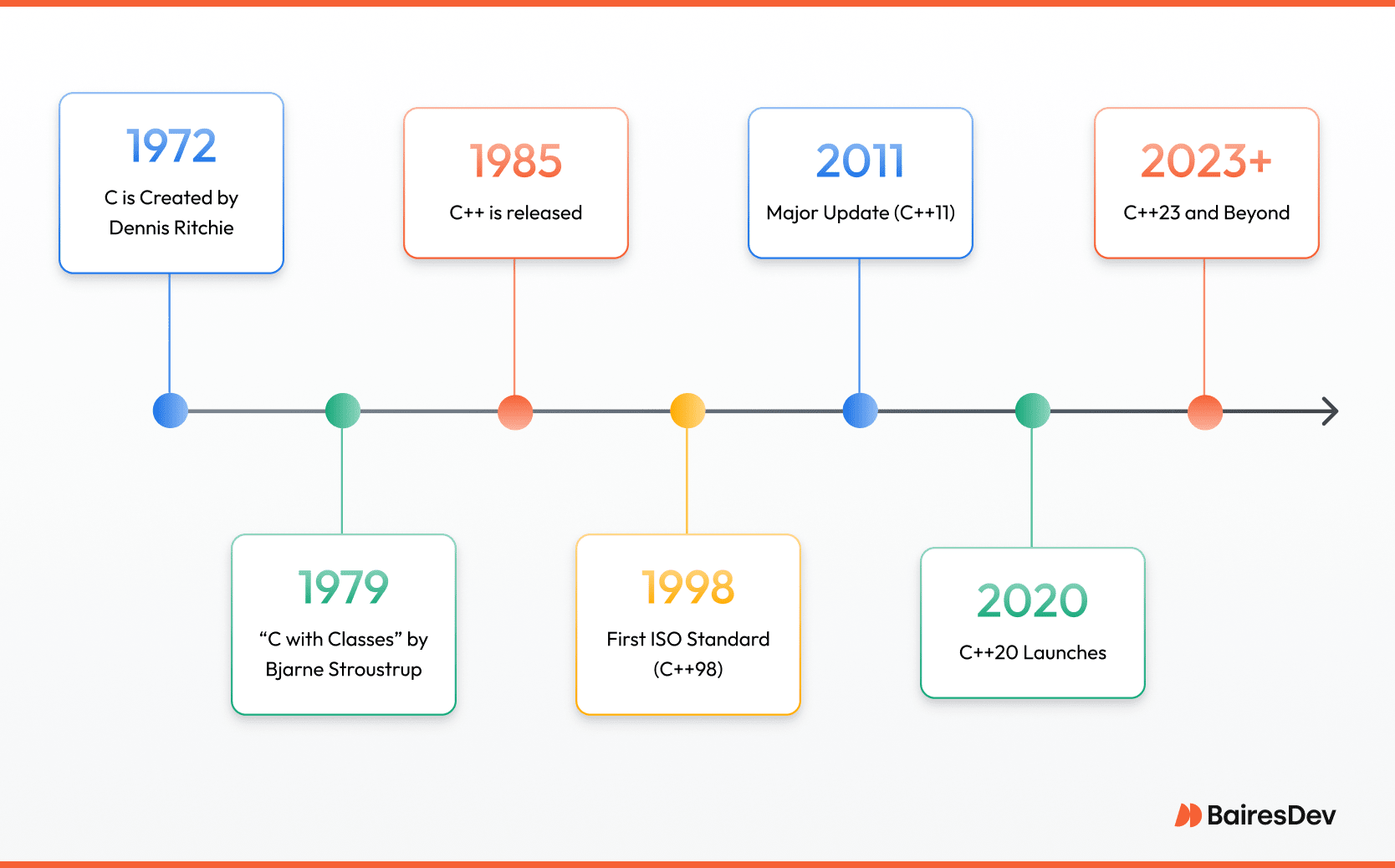
By adding classes, templates, and stronger type checks, it produced an object-oriented programming language that never severed its link to hardware. That pedigree matters when you write device drivers, compose system utilities, or tune low-level schedulers on bare metal.
Life inside the kernel
A modern kernel juggles interrupts, page faults, power states, and security monitors. Most logic must finish before the next clock tick or cores stall. Writing every line in assembly would cripple hiring and code navigation. Writing it in a managed runtime would inject garbage-collector pauses, and C++ remains the only compromise that meets deadline math.
Real-world applications include:
- Packet filters that help financial institutions avoid compliance fines.
- Hypervisor modules that isolate confidential VM memory.
- SSD firmware that triggers wear leveling before the voltage fades.
- Industrial controllers that reduce vibration in robotic milling machines.
Each example values determinism above velocity. Manual memory management in C++ is not a nostalgic badge; it guarantees an allocator will not panic when batteries sag.
Embedded systems and the cost of silence
Step into an automotive validation chamber. Dozens of embedded systems run electronic control units while engineers feed synthetic sensor data at minus-ten Celsius. Each runtime has 512kB of flash and must boot in milliseconds. Diagnostic traces squeeze into just 4kB of static memory.
C++ owns this niche because it speaks both hardware and high-level design.
Satellite vendors, pacemaker designers, and smart-grid suppliers tell similar stories. They need expressive class hierarchies yet binaries that recover after brownouts.
Apple followed that playbook when it built IOKit for macOS: a dialect called Embedded C++ let engineers craft reusable drivers without harming interrupt latency.
What about microcontrollers with 16kB of flash? Even there C++ earns a slot. Templates generate lookup tables at compile time; the binary grows by a few hundred bytes, yet the runtime avoids branches and meets its real-time loop. That trade-off is impossible if you write only portable C code.
Visual computing, image processing, and radar
Image-processing toolkits such as OpenCV and Vulkan drivers rely on C++ to push pixels. Drones that depend on radar processing run Kalman filters compiled from templated C++ because every extra register move burns battery.
Medical devices capture raw data from sensors and reconstruct images on dedicated ASICs controlled by C++ firmware. When an operating room demands real-time imaging, algorithms cannot wait for a managed runtime to sweep memory.
Game development and the unforgiving player
One late frame makes a racing game feel laggy, but more importantly it causes users of industrial virtual-reality solutions to feel nausea. An engine has milliseconds to update physics, AI, and rendering. That loop lives in C++. Lua or C Sharp may drive menus, but collisions and lighting rely on raw pointers.
- Unreal Engine remains the flagship and is written almost entirely in C++.
- Internal engines at large studios push every vector lane to stay above sixty frames per second.
- Console SDKs expose hardware counters through C++ headers for precise profiling.
Outside entertainment, the same approach powers flight software, scientific simulations, and immersive training rigs. If the platform is designed to prevent humans from noticing lag, C++ probably hides underneath.
Lessons for enterprise back ends
You may run payroll, not Fortnite, yet latency matters when fraud checks stall a credit-card swipe or when turbines need a new valve position.
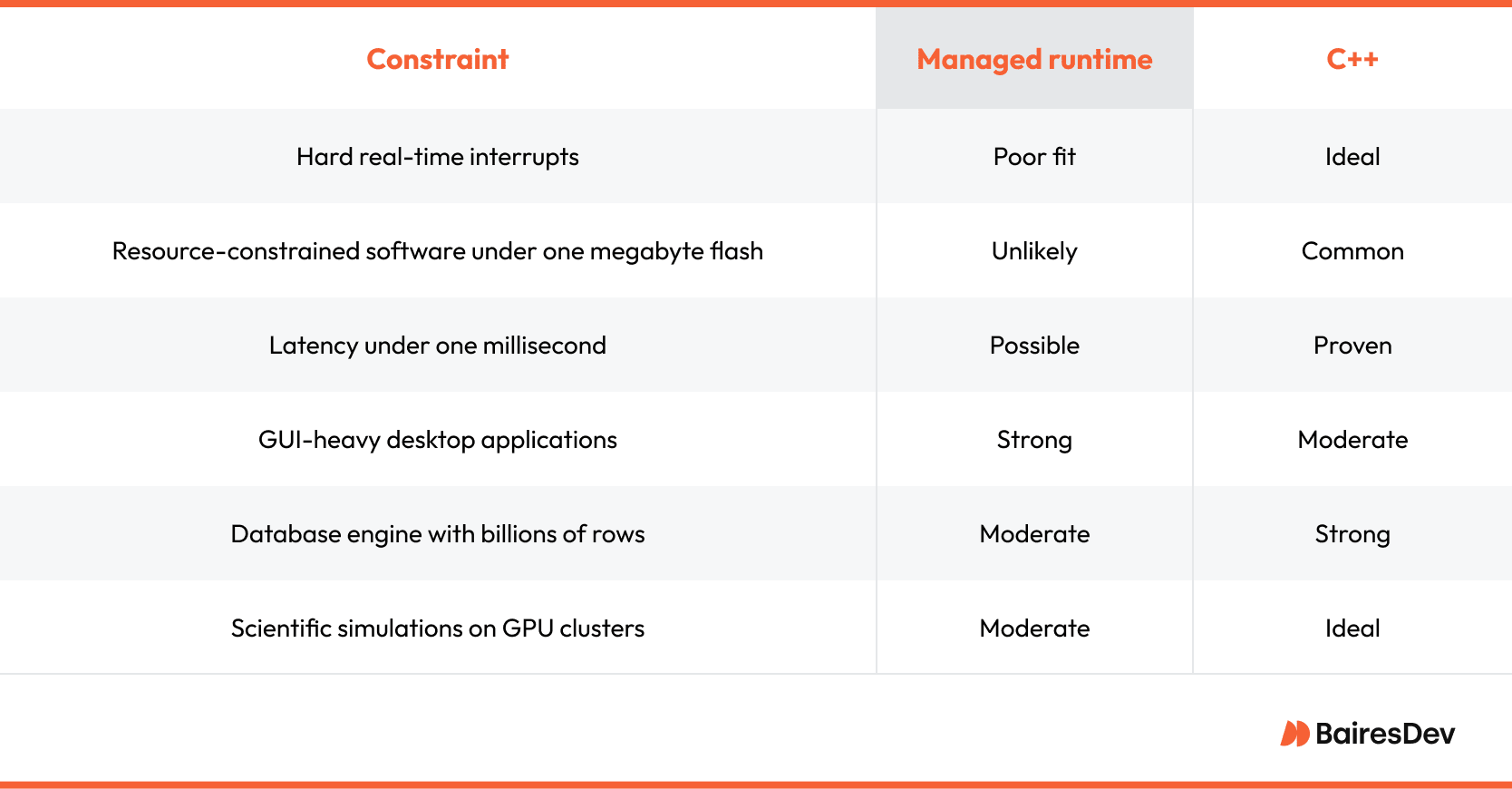
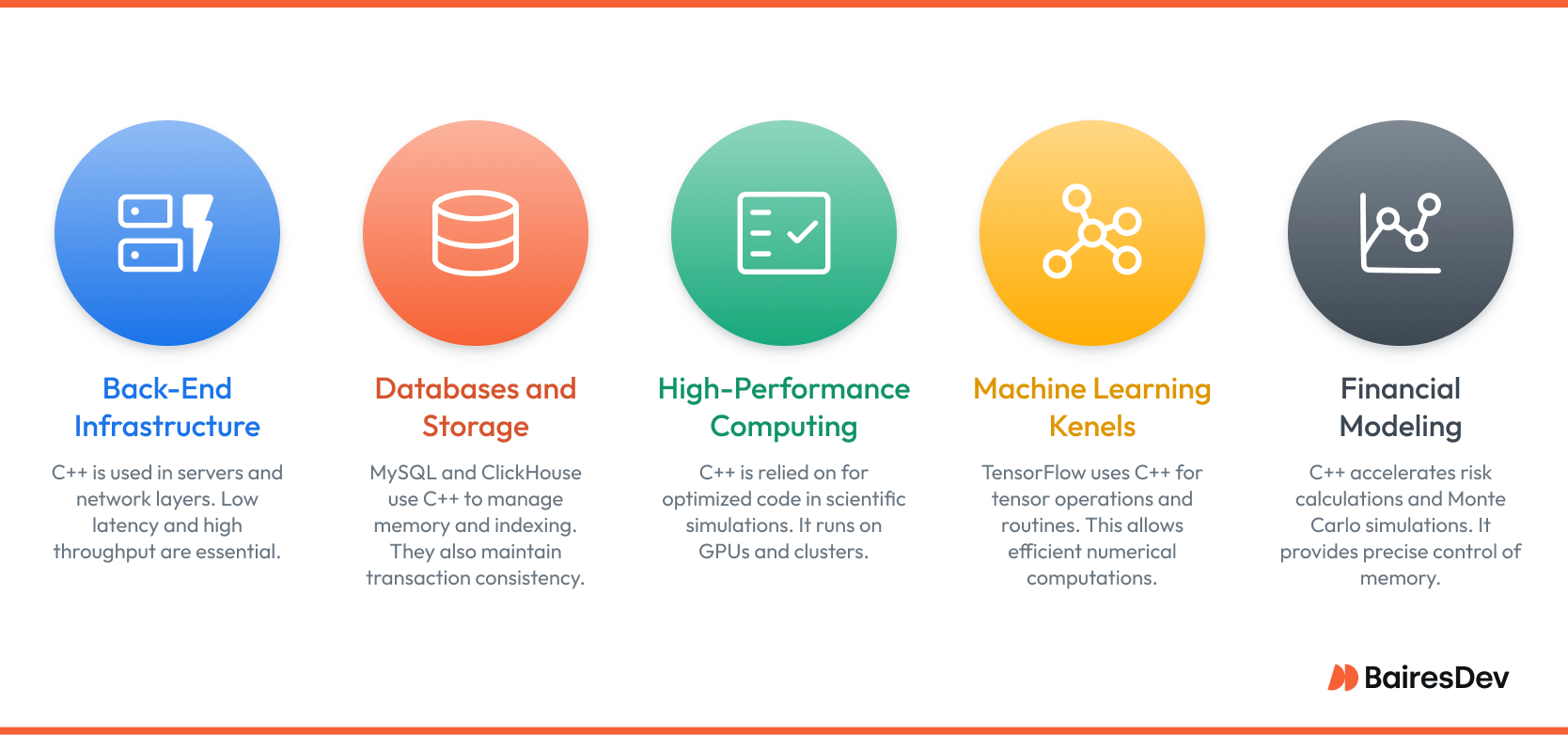
Databases, web servers, and system software
Enterprise infrastructure depends on C++ even when application developers never touch it. Web servers like NGINX, reverse proxies like Envoy, and event-driven engines such as Seastar all compile from C++. They push raw data through sockets with minimal copies, something harder to achieve in other programming languages that rely on garbage collection.
Database management software follows the same pattern. MySQL, MongoDB, and ClickHouse manage data structures such as B-tree indexes, bloom filters, and write-ahead logs. Each component must fit cache lines and respond under load spikes. C++ lets engineers lay out pages directly in memory, align to sector boundaries, and guarantee write ordering. These advantages explain why every major cloud provider maintains a fork of at least one C++ storage engine.
Back-end programming language selection often focuses on developer velocity. That is reasonable for presentation logic, yet lower layers must squeeze efficiency from hardware resources. C++ delivers efficient code that stays predictable after ten years of scale.
High-performance computing, data analysis, and machine learning
Cloud providers rent clusters with thousands of GPU nodes. The bottleneck is no longer hardware access but algorithm efficiency. Simulation, weather prediction, and financial modeling workloads rely on C++ because it compiles into kernels that feed CUDA, SYCL, and OpenMP loops. HPC frameworks like GROMACS and OpenFOAM are written in C++ because they depend on cache-aligned data and vectorized instructions.
Data analysis pipelines use Apache Arrow and Parquet. Both projects rely on C++ to encode columnar memory layouts that stream over networks. Machine-learning libraries such as TensorFlow and PyTorch expose Python APIs, yet the tensor math lives in templated C++ kernels. These kernels call BLAS libraries originally in Fortran and now ported to C++. The stack illustrates multiple languages cooperating, with C++ acting as the performance anchor.
A fintech company once found a Monte Carlo solver needed six hours for a value-at-risk calculation. Profiling revealed cache thrashing caused by subclass pointers stored non-contiguously. A redesign replaced polymorphic calls with generic-programming templates. Runtime fell to forty-five minutes on the same hardware. The patch covered one hundred lines yet depended on modern C++ language features that expose data structures directly to the optimizer.
Modern language features you can trust
An updated version of C++ is released every three years. Each update makes the language safer to use without slowing your programs down or adding extra bloat.
Compilers such as GCC, Clang, and MSVC adopt these language features quickly. Integrated development environments like CLion, Visual Studio, and VS Code surface inline suggestions and refactorings that turn writing code into smoother flow.
Below is the smallest C++ program you can write. Experienced programmers still smile at its simplicity because every binary enters through this portal.
int main() {
return 0;
}
That snippet shows how thin the layer is between human intent and machine instructions. You pay only for what you call.
Generic programming and the Standard Template Library
The Standard Template Library (STL) is the jewel of modern C++. It offers algorithms and containers that rival any newer language. Map, vector, and string types come optimized for small-buffer storage. Algorithms adapt to iterators pointing into shared memory, GPU memory, or custom data structures. This means that teams that master generic programming can swap containers without rewriting higher-level logic.
Virtual functions remain valuable when a design needs runtime polymorphism. Many codebases mix both patterns: templates for hot paths, virtual dispatch for extensibility. Leaders should encourage teams to profile and choose deliberately. Efficient code comes from measurement, not dogma.
Tooling and code navigation
Twenty years ago developers complained that C++ code completion froze editors. Language servers changed the game.
Modern IDEs integrate with Docker, Kubernetes, and remote debugging. An engineer can pause a thread inside a container running in the cloud, step through disassembly, modify a constant, recompile, and watch the pod restart in seconds. That feedback loop used to require a hardware lab. Integrated development environments have expanded significantly.
Desktop applications, browsers, and office suites
Many engineering leaders forget that ordinary desktop applications still rely on native libraries for speed and responsiveness.
Microsoft Windows contains millions of lines of C and C++ that manage windows, threads, printers, and other hardware events. Microsoft Office embeds custom C++ rendering engines so spreadsheets can recalc thousands of formulas without delay. Adobe Photoshop, Premiere Pro, and Illustrator use C++ plug-ins for image processing and high-bit-rate video encoding. Google Chrome, Mozilla Firefox, and Apple Safari depend on C++ components to parse HTML, execute JavaScript bytecode, and composite layers onto the screen.
Users judge high performance applications by perceived speed, not by the language in a job post. If a desktop application feels sluggish, customers blame the brand, not the stack. C++ gives application-development teams a way to balance rich features with efficient code. Other languages still manage workflow logic, but they drop into C++ libraries whenever frames need painting or raw data needs compression.
Real-world applications blend programming languages the way modern aircraft blend materials. Steel provides strength, aluminum sheds weight, and carbon fiber stiffens the wings. A browser tab mixes JavaScript for interactivity, C++ for rendering, and sometimes Rust for sandbox code. A finance dashboard may use React for layout while templated C++ prices derivatives in microseconds. Leaders who grasp how these layers interlock make stronger build-or-buy decisions and protect uptime.
C++ staffing strategy in a shrinking pool
Universities now focus on Python, boot camps on React. The supply of software developers comfortable with pointers has fallen, and that scarcity can become leverage. So, what can organizations do to retain and attract C++ talent?
- Create an in-house guild. Pair senior maintainers with promising staff and sponsor open-source contributions.
- Outsource backlog modules to nearshore teams that specialize in C++.
- Track subsystem ownership the same way you track uptime. Rotate only when both engineers confirm knowledge transfer.
- Reward fixes in infrastructure as highly as new features.
Recruiters may tout flexible stacks; remind them C++ knowledge compounds. Retention always beats a six-month search, followed by a six-figure hire that may or may not work out.
Choosing the language for a new service
No single rubric exists, yet leaders can make the decision visible. Compare constraints against options.
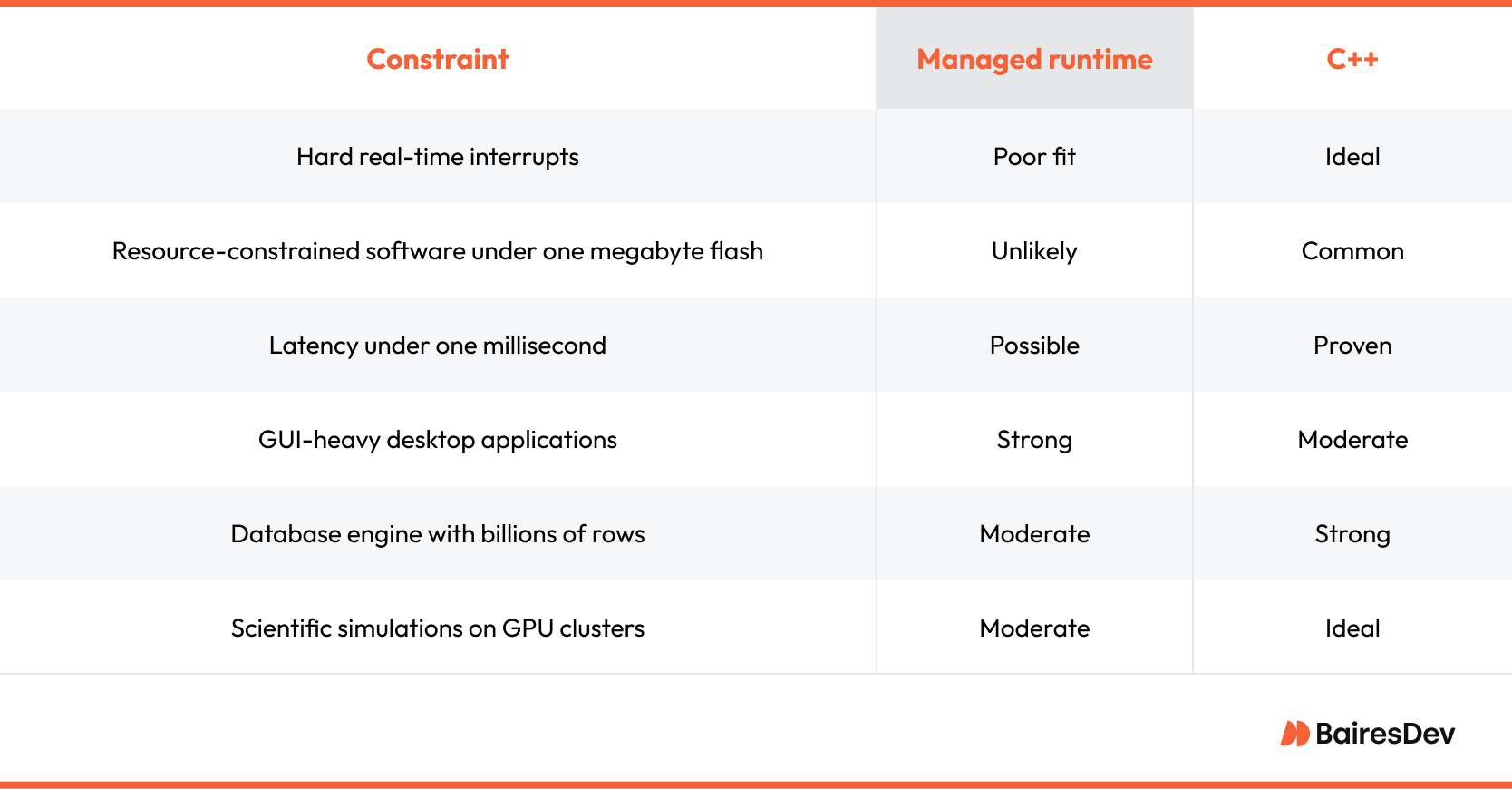
Benchmarks decide. Measure with raw data, not synthetic loops. Use perf, Intel VTune, or perf stat to capture stall cycles.
Incremental modernization beats rewrites
Incremental modernization is often a smarter path than a full rewrite. Legacy systems make finance teams nervous because updates can seem all-or-nothing. Either you start from scratch or risk falling behind. But that’s a false choice: there is a middle path.
You can gradually replace manual memory management in isolated parts of the codebase. Add mechanisms that make array boundaries explicit, which helps catch indexing bugs early. Instead of passing raw error codes, shift toward structured error handling that behaves more like return values. Break up massive source files into more modular components to reduce build times and improve clarity.
Always ensure your build pipeline tests across more than one hardware platform to catch subtle issues before they become costly. This steady approach to modernization lowers risk every sprint. It turns the release cycle into a manageable slope, not a freefall.
Closing thoughts
C++ is not a relic. It evolves with every standard yet still speaks the first language of computation. Quantum-safe cryptography, chiplet topologies, and optical links all cut tolerance for overhead.
C++ persists because physics still rewards locality, deterministic branching, and predictable ownership. If an outage burns seven figures in a minute, engineering leaders tend to choose the language that offers proof, not promises.
Frequently asked questions
Does C++ still matter if we already use Python for machine learning?
Yes. Tensor cores feed on fused-multiply-add instructions. CUDA kernels are written in C or C++, and Python orchestrates them.
Can C++ integrate with web applications?
Modern builds compile to WebAssembly. Performance-critical code can run inside web browsers at near-native speed.
What does manual memory management look like in 2025?
Smart pointers, spans, and static analyzers catch leaks early. Explicit allocation remains standard on cold paths and optional on hot paths.
Is C++ friendly to scientific computing teams?
Yes it is. It offers extensive libraries such as Eigen, Boost, Trilinos, and the STL. They provide vector math, graph search, and statistical kernels.
What is the fastest way to learn C++ for experienced programmers?
Read the Core Guidelines, compile with every warning flag, and step through int main in a debugger until the call stack feels natural.

